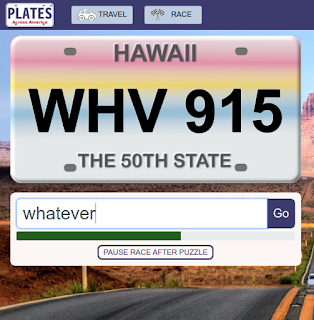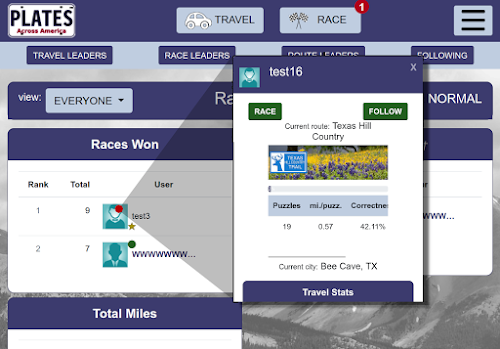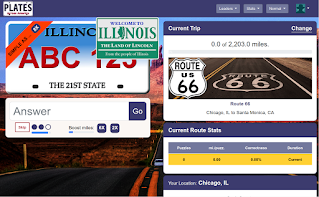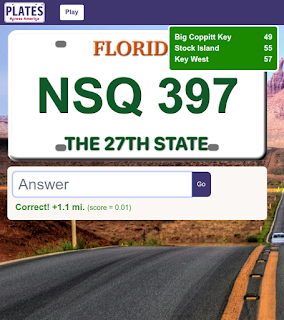Imagine you are out shopping and are browsing through the aisles of your favorite store. After a while, you glance over and notice someone standing further down the aisle. They are staring at you and holding a clipboard. You were so distracted with what was on your mind that day that you just noticed them and you are not sure how long they have been there. Have they been watching you the whole time?
You bend down to pick something off the bottom shelf to look closer. As you do this, you notice the person writing something down on the clipboard. You put the item back, glance over and again, they frantically write some more. You decide to move on to another aisle to escape their gaze. But they follow you, writing more as they go.
Being a little too creeped out by this person, you leave the store and continue your shopping elsewhere. As you enter the next store, you see that same person by the shopping carts. Again, looking at you and scribbling more on their clipboard. It's like the Twilight Zone. You leave the store immediately to drive home, now sufficiently frazzled.
As you drive, you are consumed with the thought of this person following you. Who were they? Why were they following? What were they writing? How did they know where I was going?
As you calm down a bit, you peek in the rear-view mirror. You see this person is now sitting in the back seat of your car. Startled, you scream. You pull over, demand they get out of the car and hand over the clipboard. You see that they have written down your every action. Every store you visited, product you touched, every turn you made in your car, how long you stopped at each stop sign, the radio station you are listening to and which songs you sung along to. The clipboard contains a record of your every action and behavior throughout the day.
The Internet
How would you feel if something like that scenario happened to you in real life? Would you be tolerate someone recording your every move no matter where you went? Would you allow them to follow you around all day? Would you be happy if that person was selling your information to anyone and everyone willing to pay for it?
Aside from the physical person and clipboard, that scenario is exactly what happens to you every day on the Internet and with almost every web site you visit. The only difference is that the person with the clipboard is invisible (unless you know how to look). What nearly no one would tolerate in their physical life is being allowed to happen with their on-line life. Practically speaking, there is really no difference between these two scenarios nowadays.
There is a multi-billion dollar market in buying and selling your personal data and that of every other person on the planet. Most web sites participate in either writing on that clipboard, or buying the data it contains.
Should companies with web sites be allowed to
- track your every move;
- share that data with anyone they please; or
- combine that data with the data from all other companies?
Not only do most web sites do this, it is currently deemed as the "right way" to run a web-based company. The industry acceptance practice dictates that you are not entitled to any privacy. They all put "tracking pixels" on their site which enables them to see your every move. This is not limited to simple things like which web sites you visited, but can include recording every movement of your mouse, where you hover over, for how long and where you click. The most valuable asset for these companies is the log of all your personal actions.
Free Games
There is a well-known phrase:
"If the product is free, then you are the product."
This perfectly sums up what is going on with the "free" games out there. These are provided by companies that participate in this anti-privacy web culture. You give up your privacy, they sell your data and you get to play for free. What we like to say is that for these "free" games:
"They are only free if you do not put any value on your privacy."
Why does it Matter?
Humans are flawed. We can be manipulated to do things that do not make sense, that we do not need to do or even that we do not want to do. Most people would like to think they are immune to this, but no one is. Even the smartest psychologists, who are experts on the topic, admit that even they are susceptible to manipulation even when they know it is happening. A good reference on the topic is: Influence: The Psychology of Persuasion by Robert B. Cialdini.
Deeply ingrained into our mental machinery are things that make us vulnerable to being manipulated. You and I are no match for the corporations that are peddling our private data. They have got the manipulation game refined to such a level that most people do not even notice it happening. The ramifications are scary. The fact that most people are not aware of this, or do not care about it, is even scarier.
Privacy-focused, Family Values
At Plates Across America™, we do not not engage in any of these unsavory practices and we promise never to do so. The game was conceived, designed and developed by a family (wife, husband and daughter) with the philosophy that we should treat you the way we would want our family members to be treated. We are not interested in selling your data or exploiting you in any way. We will not annoy you with advertisements, excessive emails, newsletters, on-line tracking, solicitations or any of the other nonsense most other companies seem to think is an acceptable way to treat you.
Focusing on privacy and respecting your inbox means rejecting the current accepted practices of the industry. This is like trying to swim upstream in a roaring rapids. However, just because it is hard does not mean we cannot try. We like to think it is only a matter of time before there is a rejection of the current norms and that we will be on the right side of history. Change has to start somewhere, so maybe our efforts can contribute to this in some small way.
Nothing Hidden
We charge a fee for our game because we think the honest way of doing business involves a fair exchange without any hidden costs (such as giving up your privacy). We aim to provide hours of entertainment, and we only hope for a very small fee in return.
A movie gives 2 hours of entertainment and costs $10. A cup of coffee costs nearly $3 and lasts less than a hour. Our game costs less than both of those and provides many, many more hours of entertainment.
We do not try to trick you into buying the game. We provide a demo version so you can understand whether it has any appeal to you, and then a generous free trial period that gives you access to the full game and all its features. Only then, once you know exactly what we have to offer, do we ask whether you feel it provides enough value to justify the cost.
We encourage you to try our game and support the idea that privacy-focused companies can succeed.
Start with our free demo:
Play the Free Demo Game
Happy Travels!

































